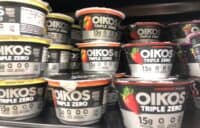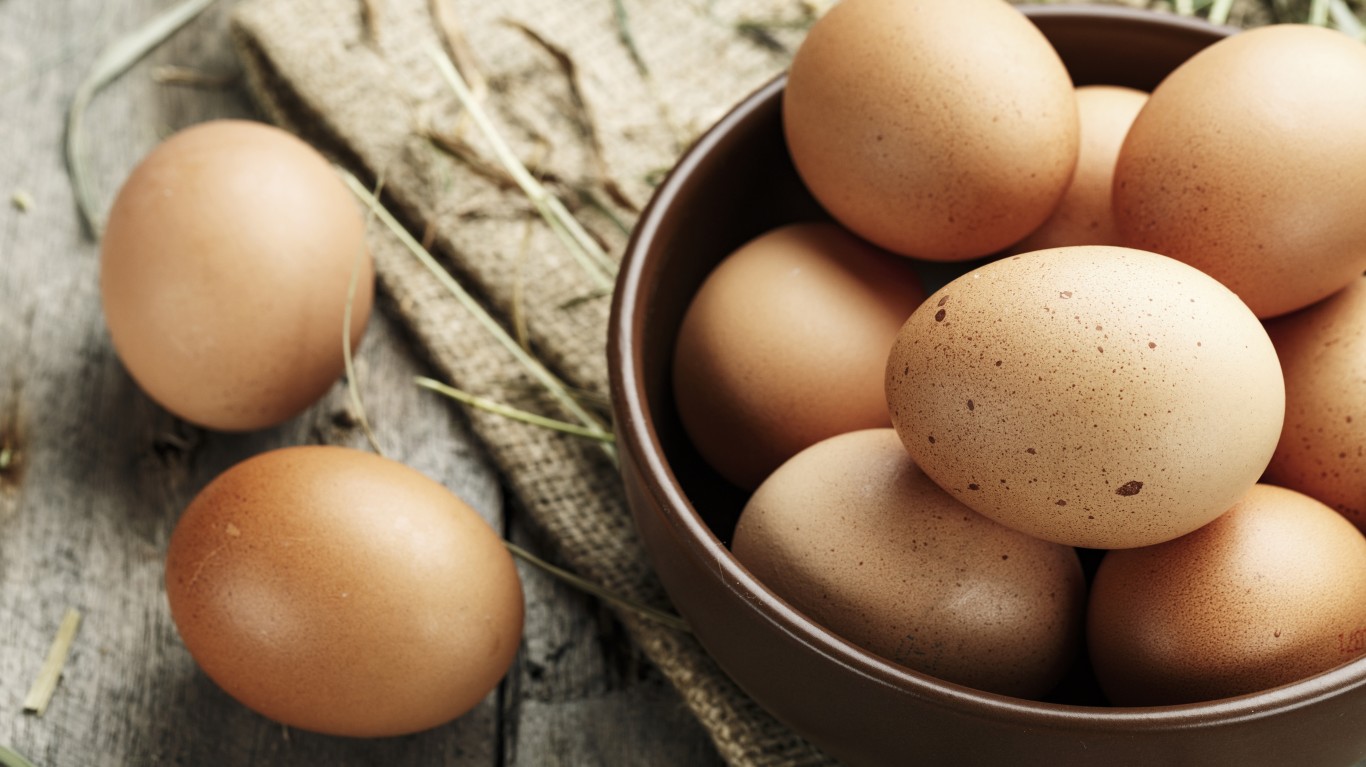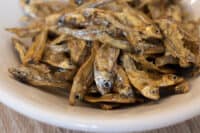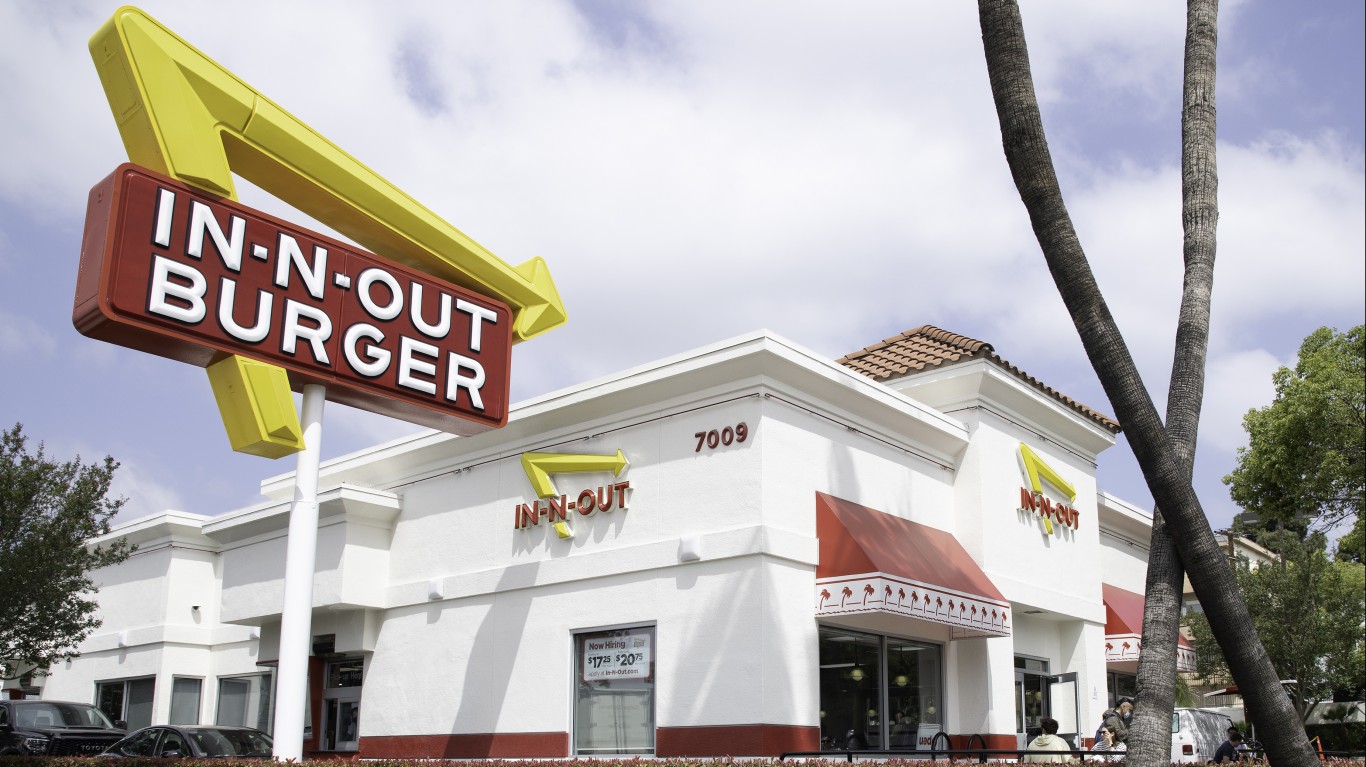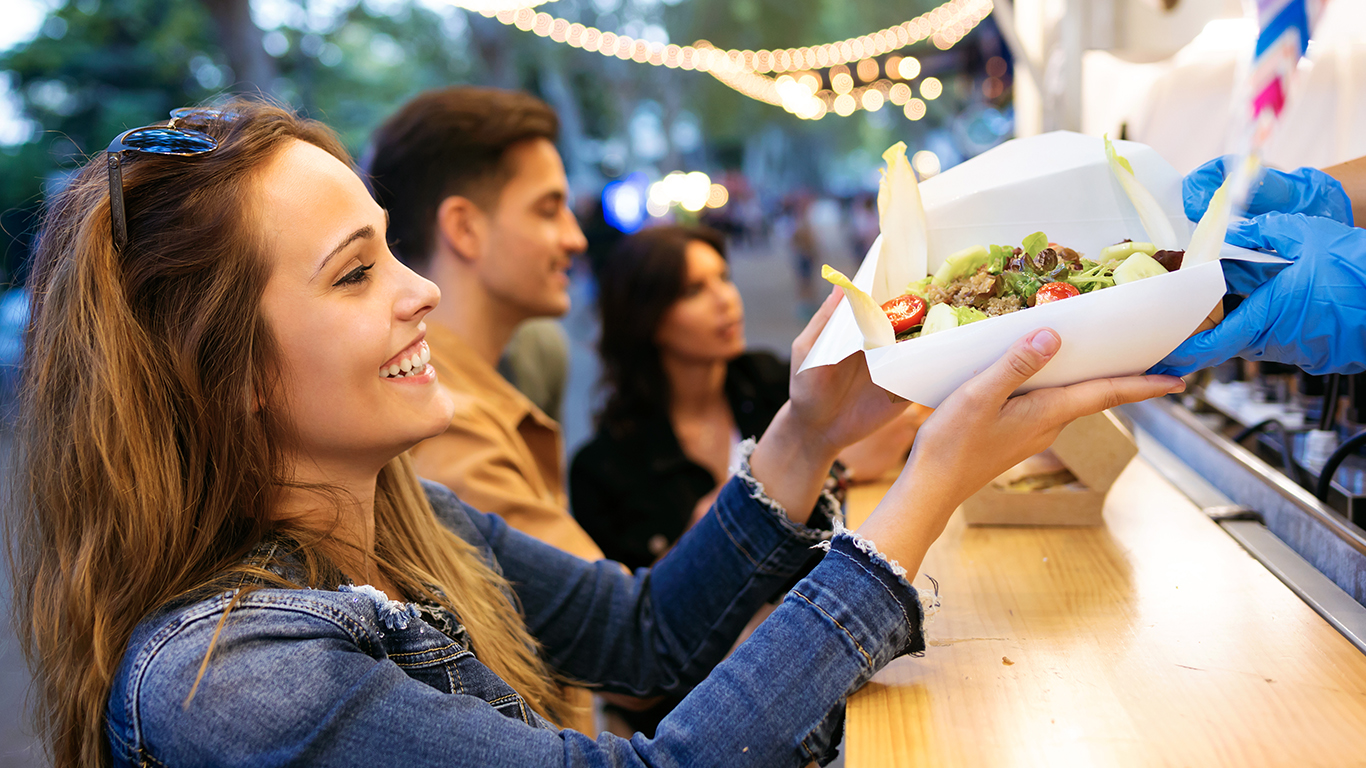
A fad is a “trivial fancy adopted and pursued for a time with irrational zeal…or an important matter imperfectly understood [and] taken up and urged with more zeal than sense” — at least according to an article called “Our Tendency to Fads,” published in the Journal of the American Medical Association in 1913.
The world of food seems particularly susceptible to fads. It has been estimated that about 15,000 new food products are introduced in the U.S. each year, at least some of them probably destined to become at least minor fads. Every week seems to bring a new diet, a new superfood, a new way of getting food on the table. These, for instance, are the biggest trends in food and drink since 2010.
Some food fads prove to have lasting strength, evolving into trends, which then, in turn, evolve into commonplaces — things that become so much a part of our culinary lives that we can’t remember when we didn’t have them, or imagine how we could have managed in their absence.
Whether they prove to be permanent additions to our ways of eating or not, some food fads become famous — written about in all the major epicurean publications, talked about whenever food-lovers chatter, reflected in countless restaurant menus or on every grocery shelf.
Click here to see the most famous food fads of the past decade.
Quinoa and kale, for instance, are household words. Avocado toast and pumpkin spice latte are cultural touchstones. Almost everybody knows what “paleo” and “keto” mean.
Truly famous food fads often get that way because truly famous people take them up, and a look at some of the best-known and most widely disseminated examples in recent years shows how important the Kardashians and Paltrows and Gagas of the world have been to the way we eat and drink.
Publications that cover the entertainment world assemble photographs of notables eating frozen yogurt or post videos of music stars discussing fried chicken — and magazines and websites of all kinds seem to have an inexhaustible appetite for stories on the way celebrities eat (or stop eating), as if these rarified creatures are sharing healthy eating habits that will change our lives.
With an eye to celebrity endorsements (and sometimes investments), 24/7 Tempo has curated a list of “trivial fancies,” dietary and otherwise, that have proven resilient (and non-trivial) enough to achieve genuine renown.
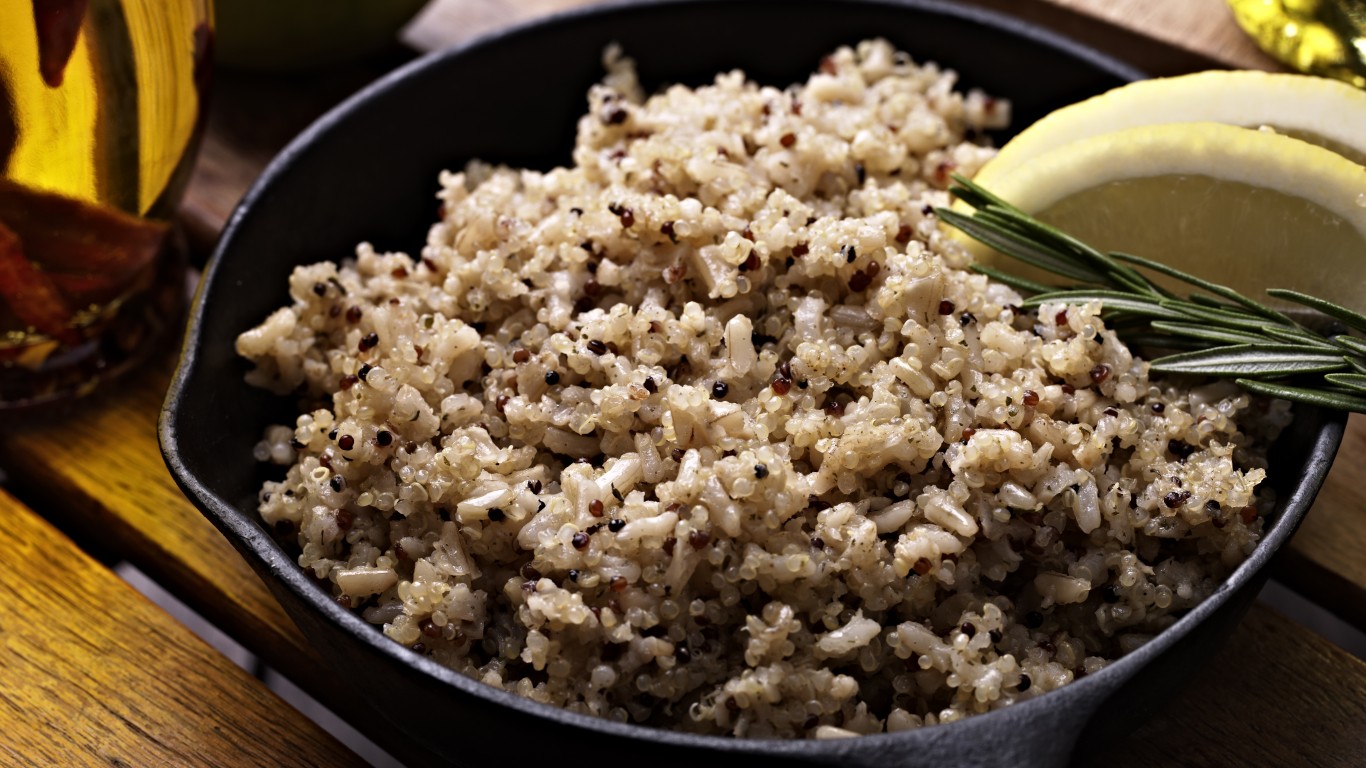
Quinoa
Quinoa (pronounced KEEN-wah, in case you’ve been in Antarctica for the last ten years) is a nutritious grain-like seed that has been a dietary staple in the Andes for thousands of years. Americans first took note of it in a big way after Oprah Winfrey publicized it as part of her 21-day “cleanse” diet in 2008.
[in-text-ad]
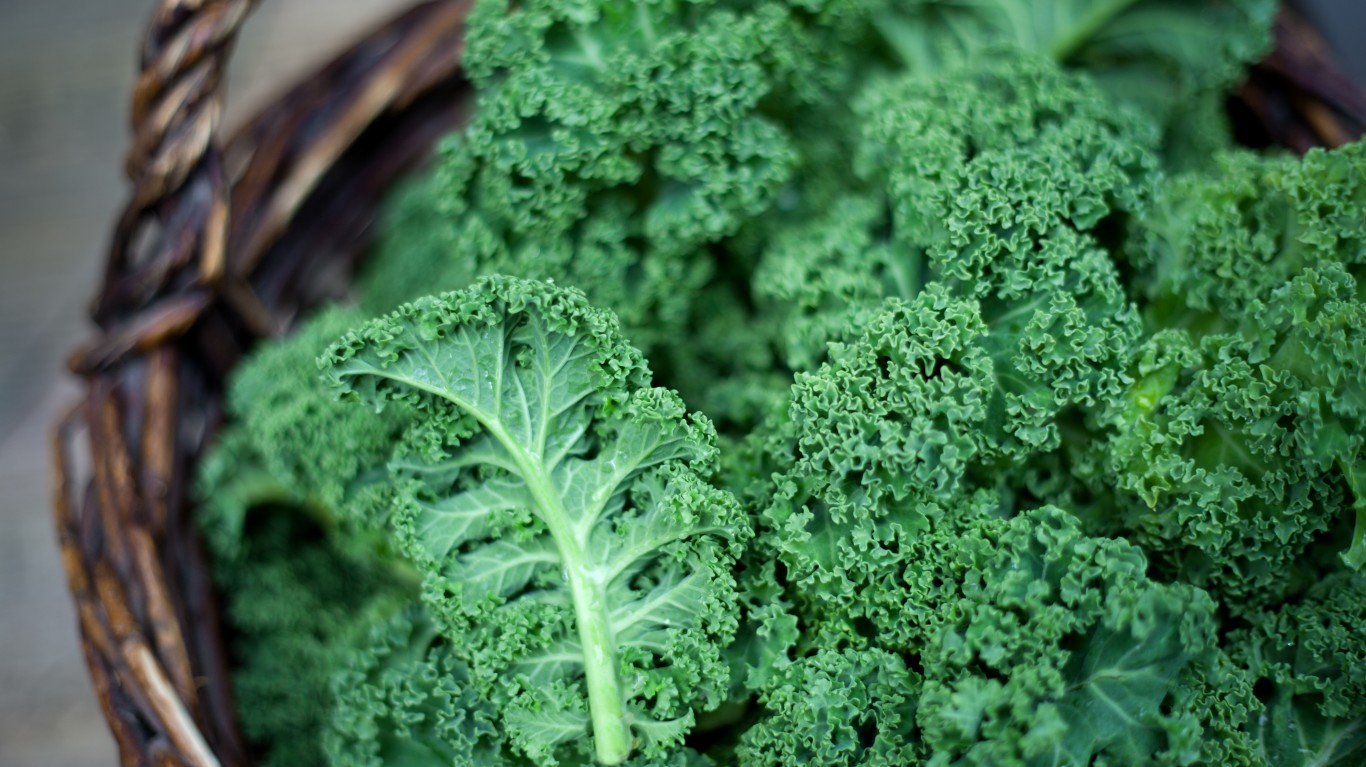
Kale
This “superfood” leafy green has been all but inescapable in recent years, sometimes as a cooked vegetable but also in the form of chips or in everything from hummus to pesto to pizza crust. Shout-outs from people like Dr. Oz and Gwyneth Paltrow (who demonstrated making kale chips on “Ellen” in 2011) helped push it into the mainstream, where it seems to still be lingering.
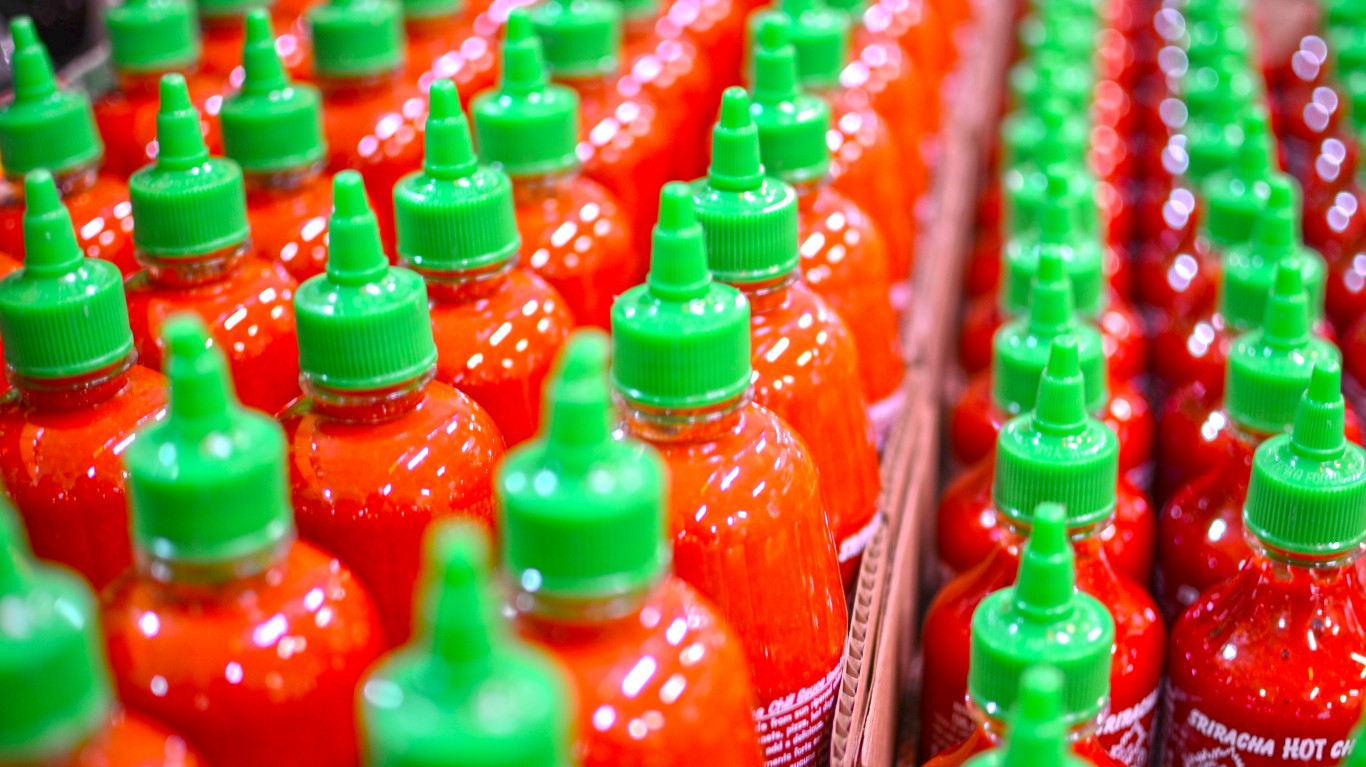
Sriracha
The so-called “hipster ketchup,” sriracha is Thai in origin, but has been made in the U.S. under the Huy Fong label since 1980. It started appearing on tables all over the country, at restaurants Asian and otherwise, after it was named Ingredient of the Year by Bon Appétit in 2010, and subsequently lauded in other publications. Amy Adams got teary-eyed expressing her love for the sauce on “The Tonight Show” a few years back, and Nick Jonas has said that he’s a fan of sriracha popcorn.
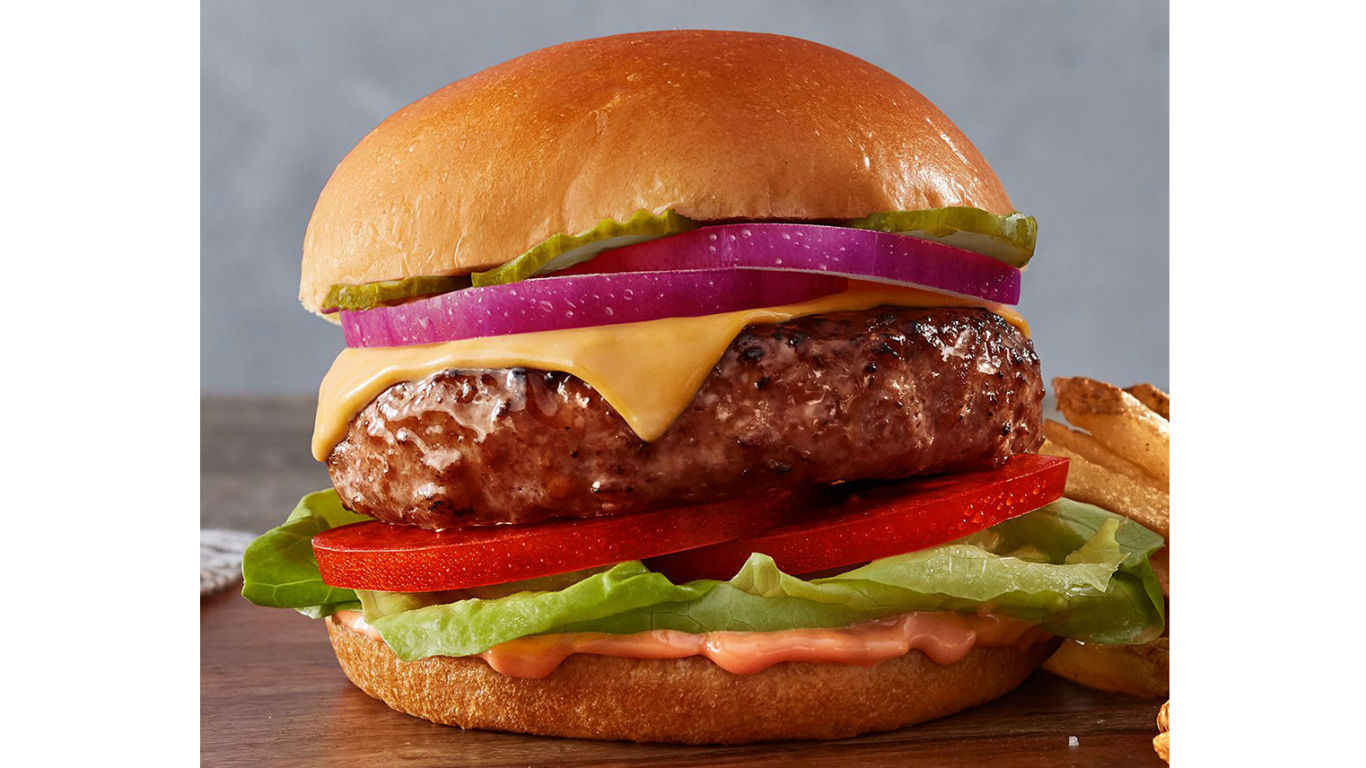
Plant-based meat
Impossible Foods, one of the two major California companies now selling vegan burgers whose flavor and texture approximate those of ground beef, counts Katy Perry, Serena Williams, Jay-Z, Trevor Noah, and Will.i.am among its investors. Its rival, Beyond Meat, does pretty well in the celebrity investor department, too, with such bold-face names as Leonardo DiCaprio, Snoop Dogg, Jessica Chastain, Shaquille O’Neill, and Lindsey Vonn on board. Between them, the two firms sell their products at chains like Burger King, Carl’s Jr., White Castle, Subway, and Dunkin’, and increasingly in supermarkets as well.
[in-text-ad-2]
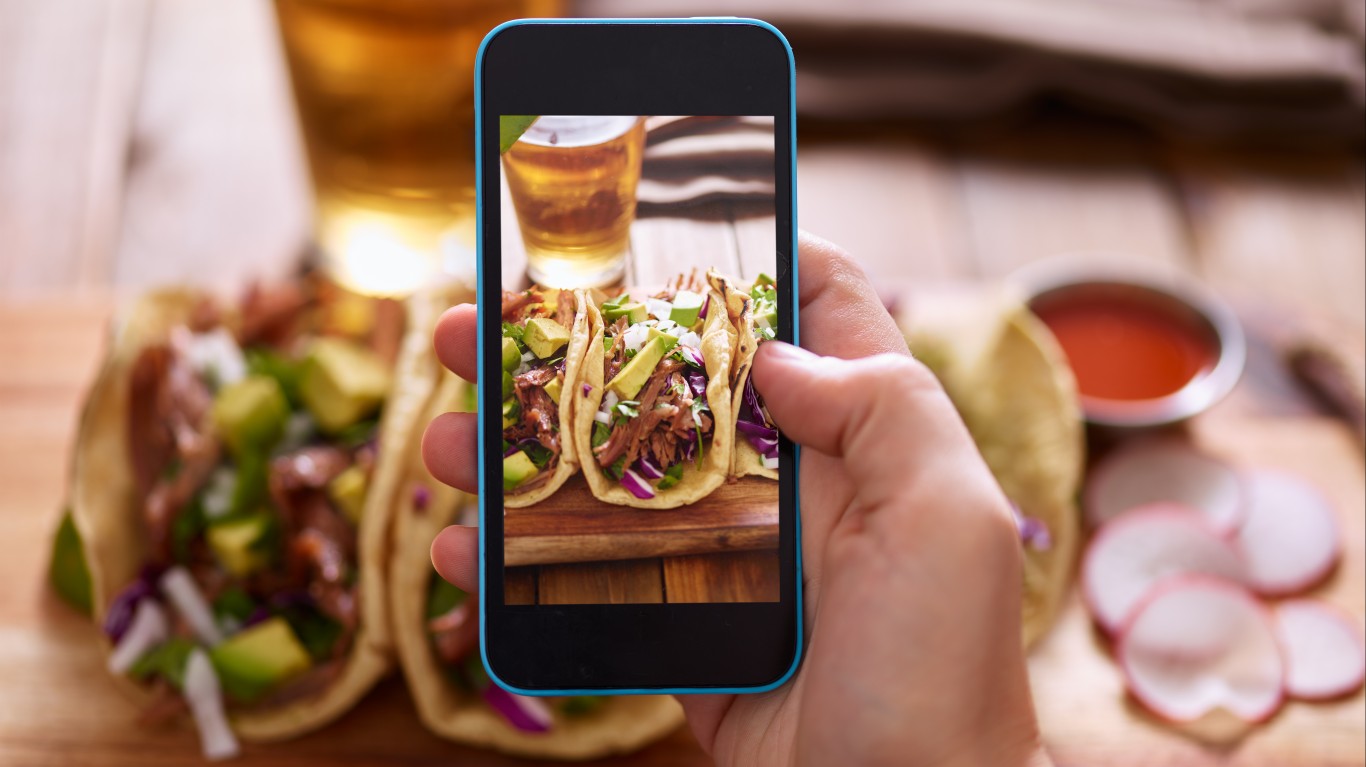
Photographing your food
Whether its Beyond Meat or Certified Black Angus, people today photograph their burgers — and every other kind of food imaginable — before actually eating it. The co-founder of Instagram posted the app’s first-ever food photo (before the app was even called Instagram) from a taco stand in Mexico in 2010. Today, more than 130 million Instagram posts are hashtagged #foodporn and a 2017 study found 69% of those aged 18 to 34 had taken a photograph or video of food they were about to eat and posted it on social media.
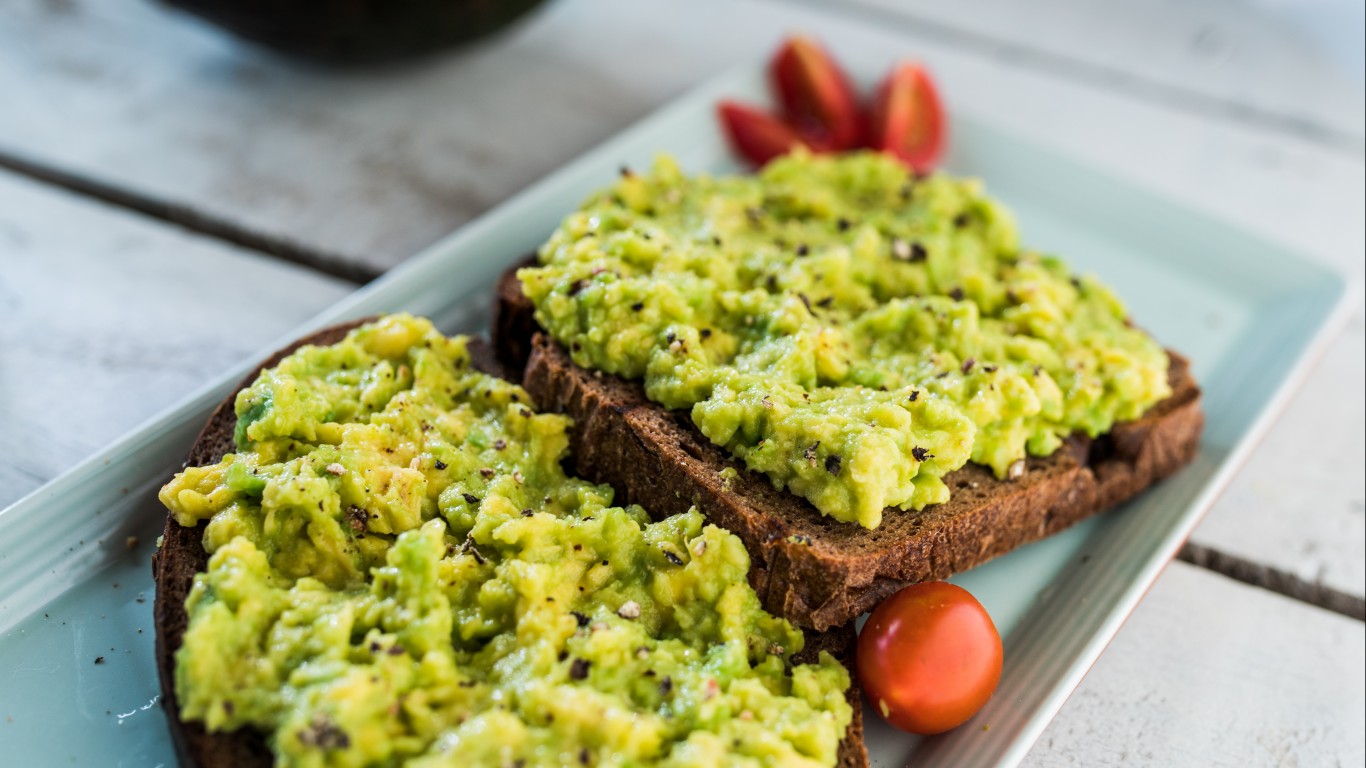
Avocado toast
Avocado toast was apparently invented at a restaurant called Bills in Sydney, Australia, in 1993, but it didn’t take off in America until 2013, when Gwyneth Paltrow included a recipe for it in her cookbook “It’s All Good.” Jessica Alba, Chrissy Teigen, Kate Beckinsale, and Drew Barrymore are among the many celebs who have since graced us with their own variations on the theme.
[in-text-ad]
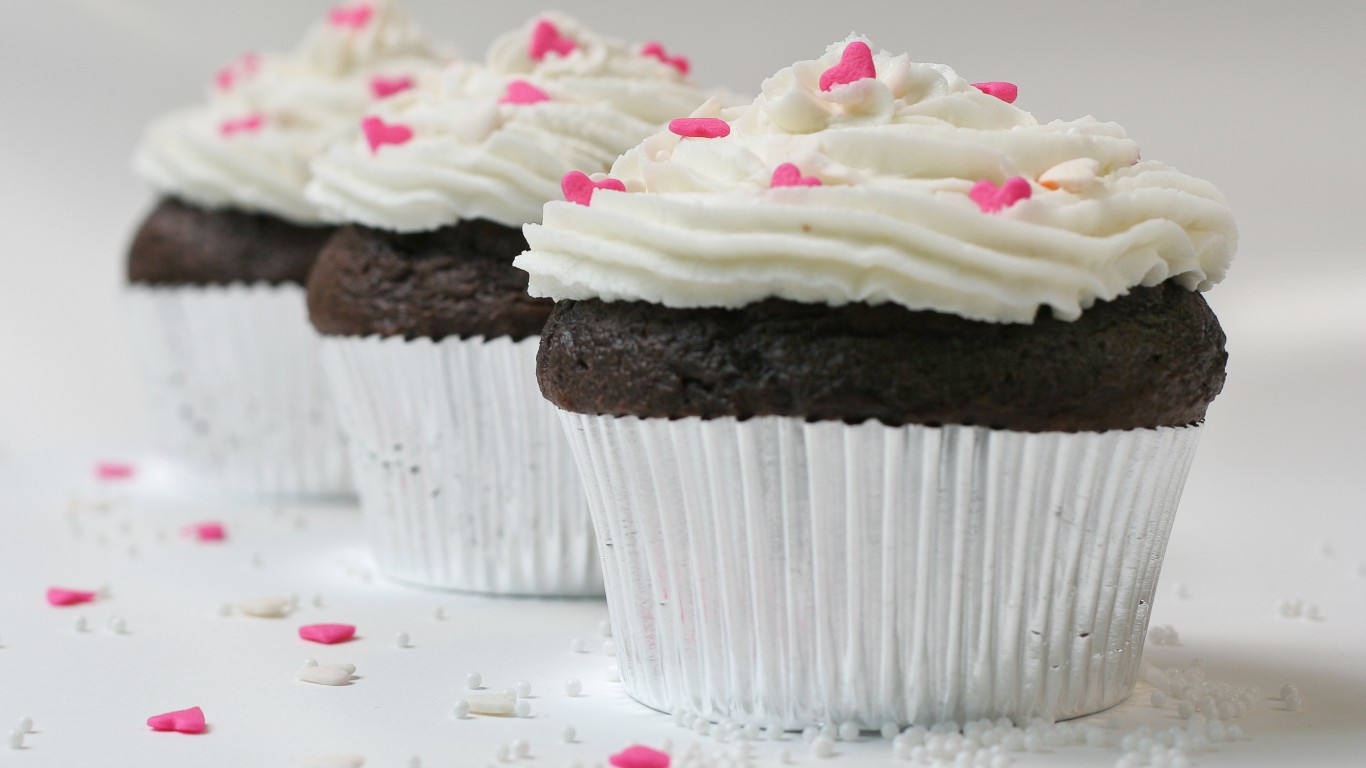
Cupcakes
Reality shows like “Cupcake Wars” and “Cupcakes Girls” helped fuel the cupcake craze, which started in the 2000s but continued to pick up steam in the present decade. Famous fans of the little frosted confections include Lauren Conrad, Sophia Vergara, Denise Richards, and both Kim and Khloe Kardashian.
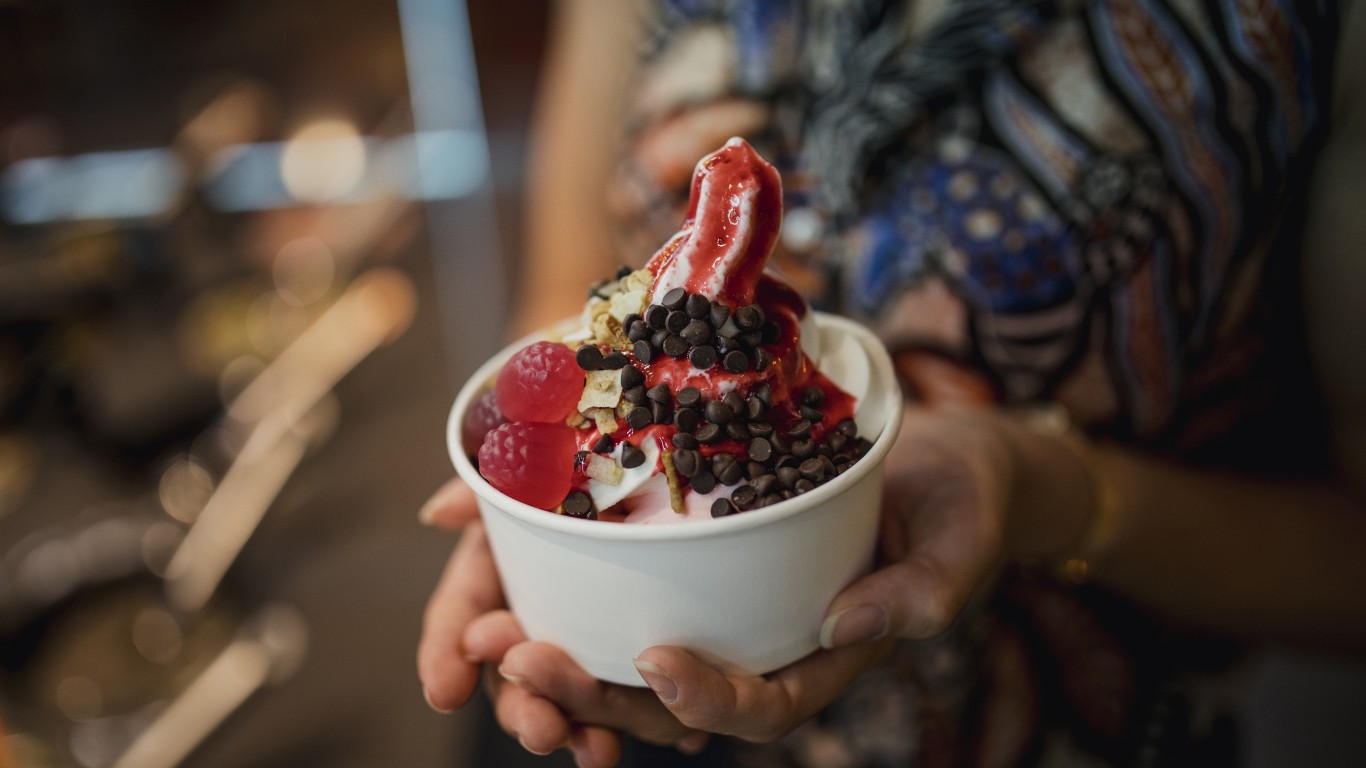
Frozen yogurt
Froyo has been around for decades, but in the early 2010s, a new generation of purveyors began appearing, offering larger flavor selections and add-ons like M&Ms, Oreos, and crushed candy bars that seemed to counteract whatever health benefits the stuff may have over ice cream. Photographic evidence exists of such personalities as Adam Sandler, Lindsay Lohan, Gene Simmons, Elle Fanning, and Bella Hadid showing their love for this icy dessert.

Gluten-free everything
An estimated 1% of the world’s population suffers from a serious autoimmune condition called celiac disease, triggered by exposure to gluten, a protein found in wheat and other grains. A much larger percentage identifies as gluten-intolerant but not celiac, while still others go gluten-free because they think it’s better for their health. It might almost be easier to name the famous folk who have no problem with the stuff than those who avoid — or have avoided — it. Their number includes Ryan Phillippe, Victoria Beckham, Miley Cyrus, Lady Gaga, Rachel Weisz, Billy Bob Thornton, Russell Crowe, and Chelsea Clinton and her dad.
[in-text-ad-2]
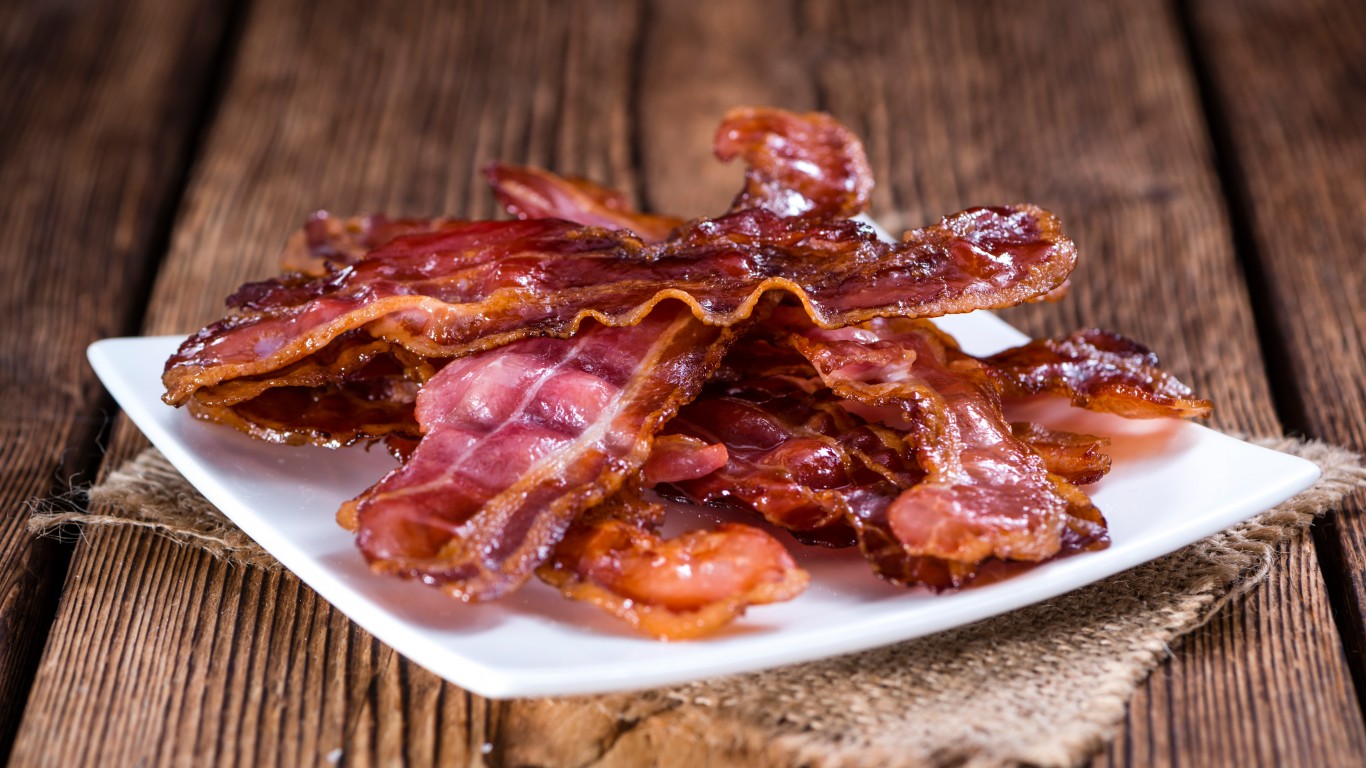
Bacon Everywhere
Almost every non-vegetarian-or-vegan’s favorite food, bacon has an unmistakable flavor and an irresistible aroma, and as if the thing itself weren’t more than sufficient, bacon-flavored foods and beverages seem to just keep coming. Fictional bacon obsessives have included Joey Tribbiani on “Friends,” Agent Cooper on “Twin Peaks,” Ron Swanson on “Parks and Recreation,” and of course good old omnivorous Homer Simpson. In real life, believe it or not, Gwyneth Paltrow is on record as saying (to The Telegraph in London three years ago), “I’m not sure how healthy bacon is in general, but I know it’s incredibly delicious.”
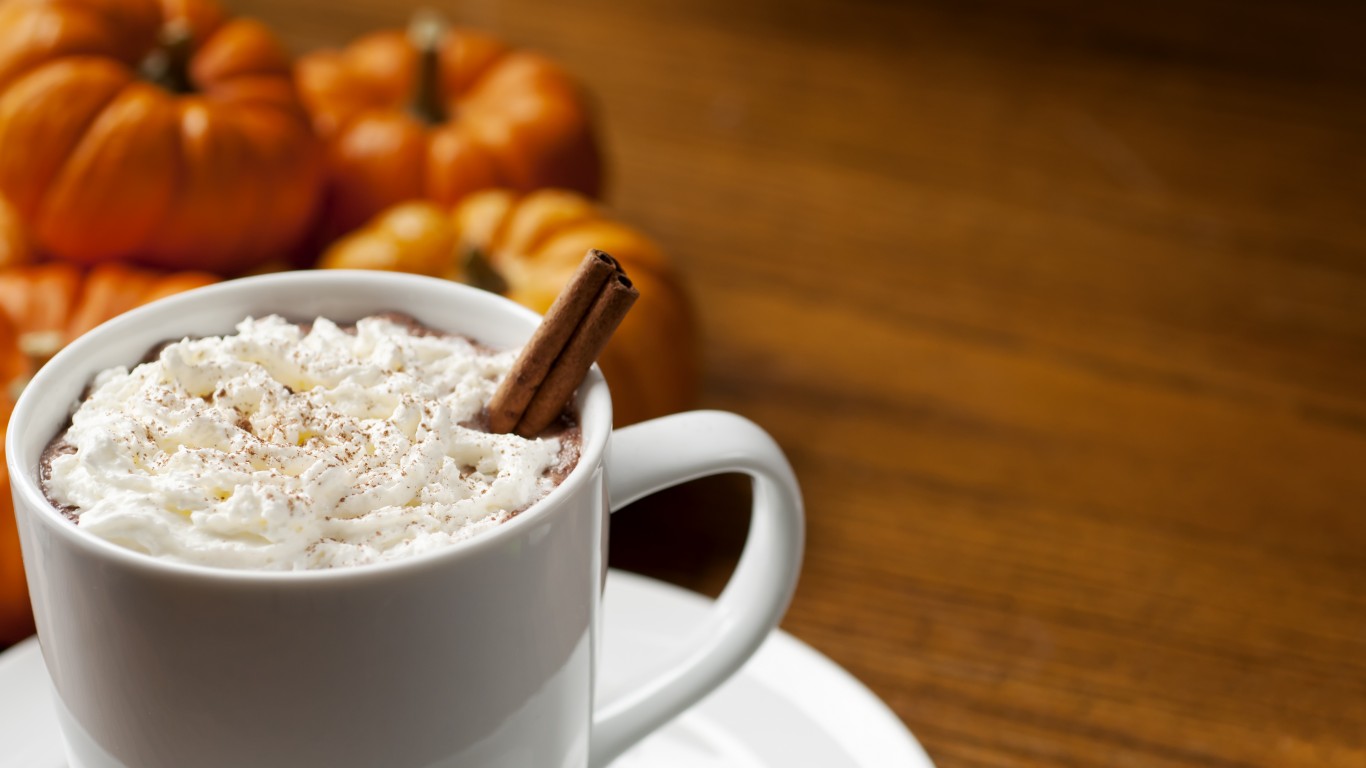
Pumpkin spice mania
Blame Starbucks for getting this whole thing started back in 2004 when it rolled out its Pumpkin Spice Latte nationally. Every other coffee and fast food chain soon followed suit, and that it turn led to all kinds of pumpkin-spice things (which in general means they’re flavored with cinnamon, ginger, nutmeg, allspice, and sometimes cloves). Trader Joe’s alone sells about 60 products in the genre, and it is now possible to indulge your pumpkin-spice craving with everything from almonds to cheese to a martini. Taylor Swift once wrote that one of the great things about fall was “not caring when people make fun of pumpkin flavored stuff cause you LOVE IT.” Fall Out Boy bassist Pete Wentz thought it might be a good idea to “start a gentleman’s club that enjoys pumpkin spice lattes,” and even hypercritical chef Gordon Ramsay once allowed as how he enjoyed PSLs when fall rolled around.
[in-text-ad]
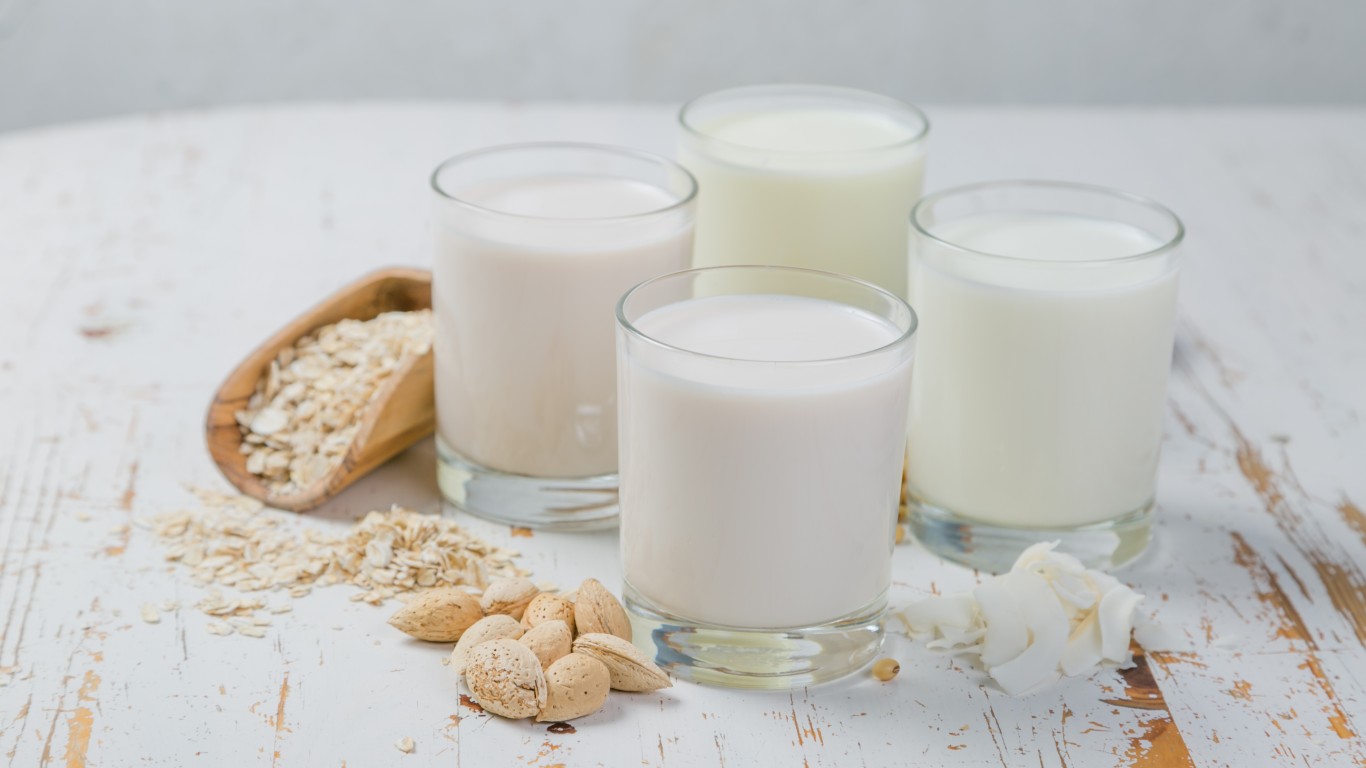
Alternative milks
Vegan Ariana Grande likes soy milk in her macchiato. Jennifer Aniston puts almond milk in her smoothies. Those are just a couple of examples of mock-dairy, though. Oats, flax seeds, cashews, hazelnuts, walnuts, macadamias, peas, rice, peanuts, coconut, chickpeas, hemp, and more get turned into “milk” these days. The dairy industry hates the trend (and the fact that these alternative creamers are called “milk”), but with the kind of publicity these substances are getting, you probably can’t put the craze back in the bottle.

Kombucha
Kombucha is fermented tea, probably invented in China about 2,000 years ago. It hit American shores in the 1990s and took off in the 2010s, showing a 28% sales increase between 2010 and 2011 alone. It’s estimated that it will be racking up annual sales of $1.8 billion by 2020. What notables quaff it? Orlando Bloom, Jake Gyllenhaal, Zoe Kravitz, Lady Gaga, Reese Witherspoon, and of course Gwyneth Paltrow, among others.
Apple Cider Vinegar
Chances are that if somebody told you that by swigging a little apple cider vinegar daily, you could lose weight, avoid diabetes, cure a sore throat, have cleaner teeth, and improve your skin and hair, you’d reach for a bottle — right? And that’s exactly what some of its exponents claim — apparently not without some evidence in many cases. Scarlett Johansson, Hilary Duff, Miranda Kerr, and trend-setters (-followers?) Kim and Kourtney Kardashian all apparently think it works.
[in-text-ad-2]
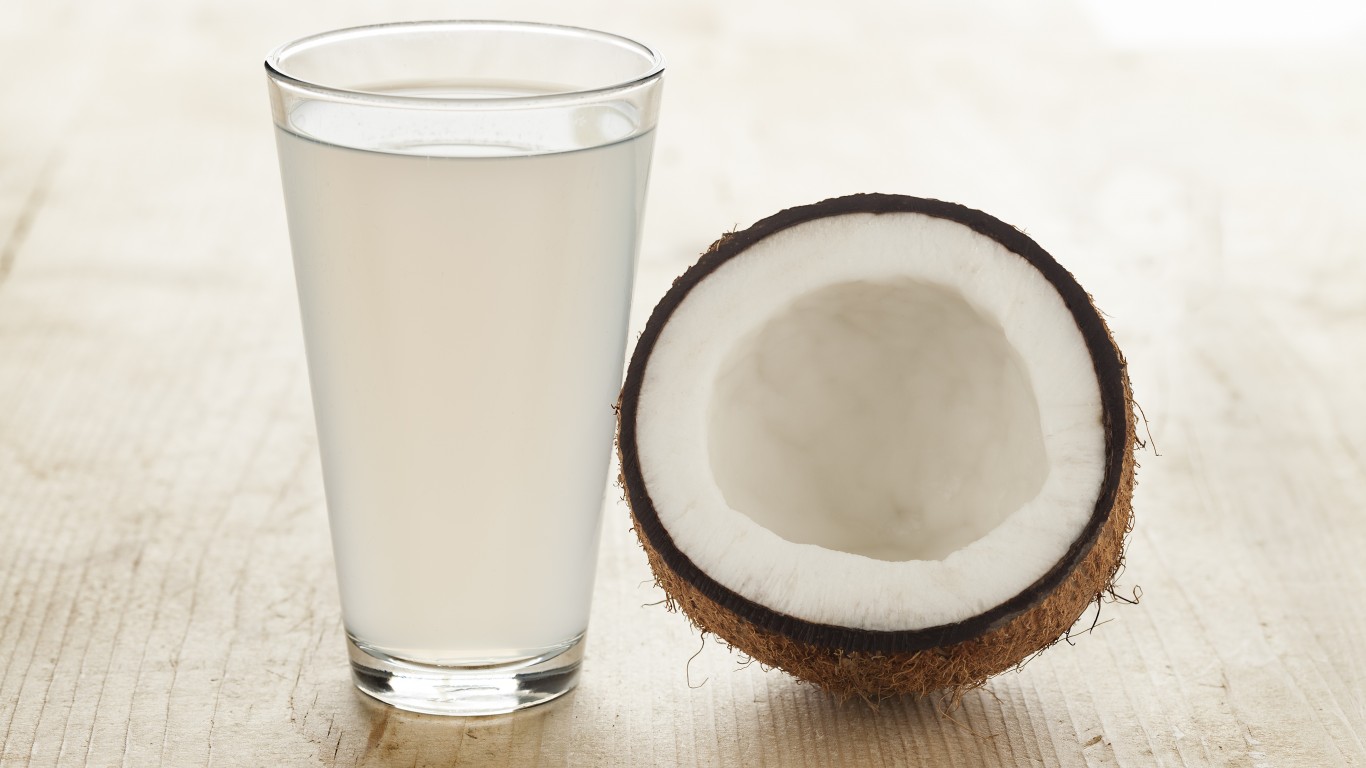
Coconut water
Demi Moore, Sienna Miller, and Madonna are among the film and music stars who swear by coconut water. This isn’t to be confused with coconut milk, which is the rich, creamy substance made from grated coconut. Instead, it’s the liquid that sloshes around inside a young green coconut. It’s a nutritious natural beverage that’s good for hydration. Does it really reduce blood pressure, protect against diabetes, help prevent kidney stones, and all the other things its proponents believe? Maybe.
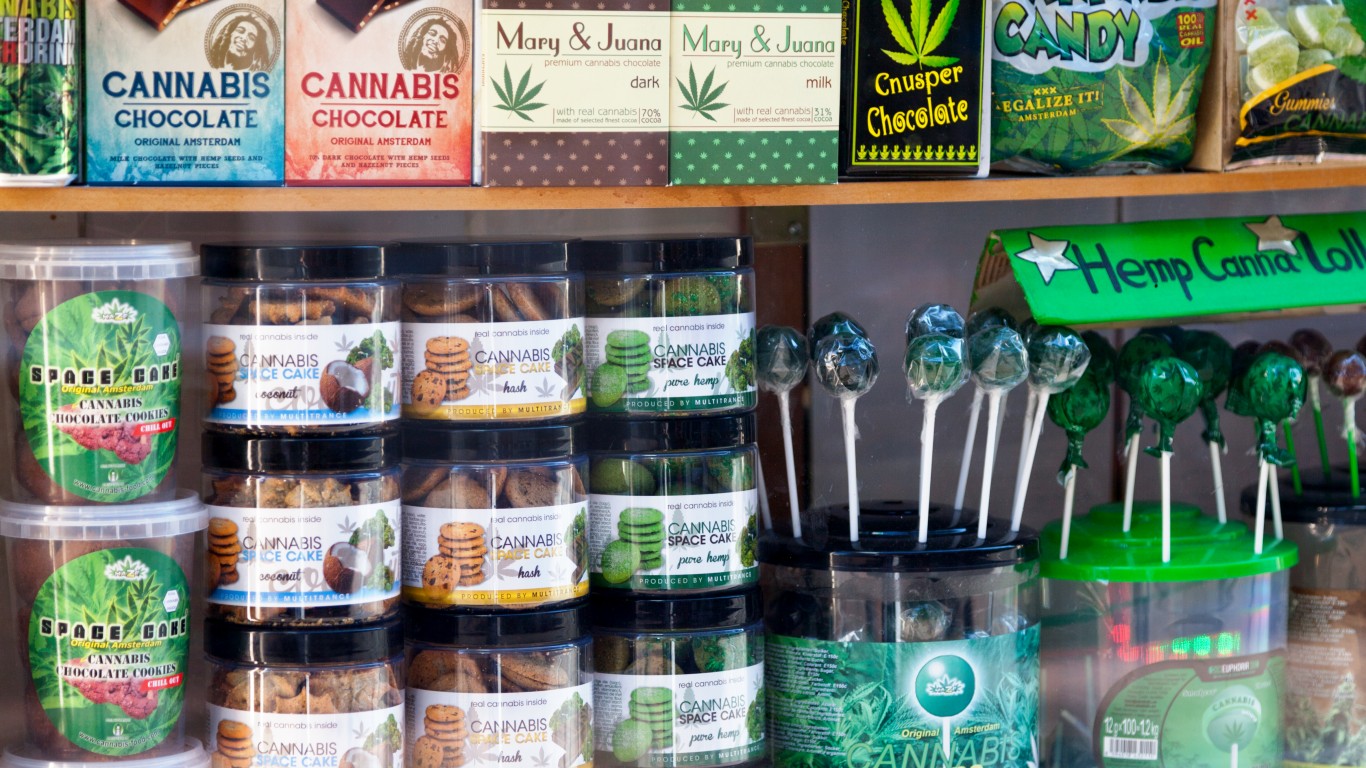
Edibles
Recreational marijuana is now legal in 11 states, and has been decriminalized in a number of others — and cannabis-spiked foods (and drinks) are increasingly common. Not surprisingly, a number of celebrities are getting in on the act, not just enjoying these products but investing in them — including people like well-known aficionados Snoop Dogg and Willie Nelson (well, of course) and Snoop’s good buddy Martha Stewart, as well as everyone from Melissa Etheridge to Mike Tyson to Seth Rogan.
[in-text-ad]
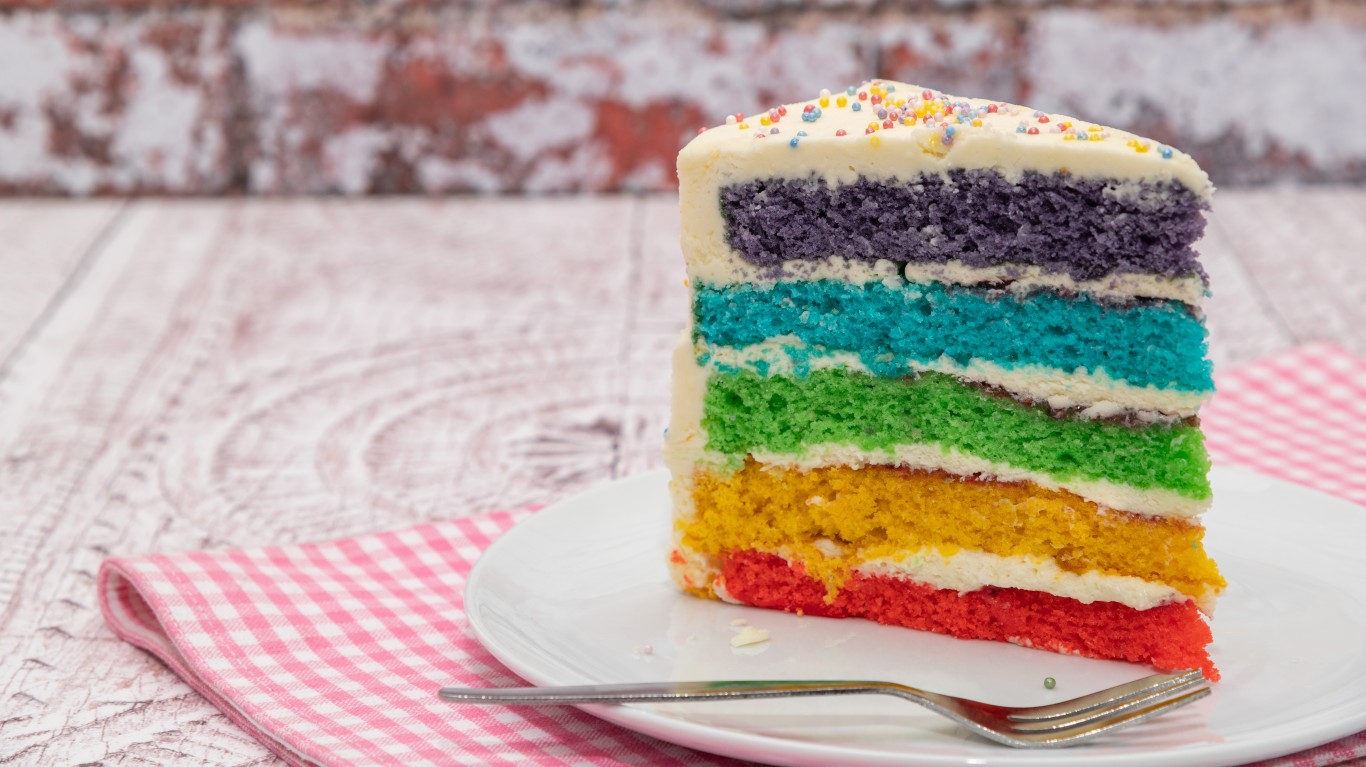
Rainbow foods
Rainbow cake, rainbow doughnuts, rainbow pasta, rainbow burger buns, rainbow popcorn balls, rainbow bagels (which may have gotten the trend started)… Everybody loves nice colors, but where will the proliferation of what Eater once described as “foods that look like they belong in a Lisa Frank-designed universe populated by unicorns” end? The fad appeared to be waning a few years back, but seems to have found new life as an expression of LGBT pride. One big fan of rainbow bagels is reality-TV star and Kardashian bestie Foodgod (born Jonathan Cheban).

Food delivery apps
Here’s a trend that doesn’t need celebrity assistance. It’s here to stay, on seemingly every socioeconomic and culinary level. According to DoorDash, the leader in the field, 66% of the customers they surveyed claimed that delivery was their favorite way to get dinner on the table, above cooking, picking up takeout, or going to a restaurant (in that order). More than 38 million people will use their phones, tablets, or computers to order meals in the U.S. this year, a 21% increase over 2018. For those people who do like to cook, especially if they’re concerned about their health, meal delivery kits are also a thing, with the likes of Martha Stewart, Beyoncé, and Tom Brady branding such enterprises.
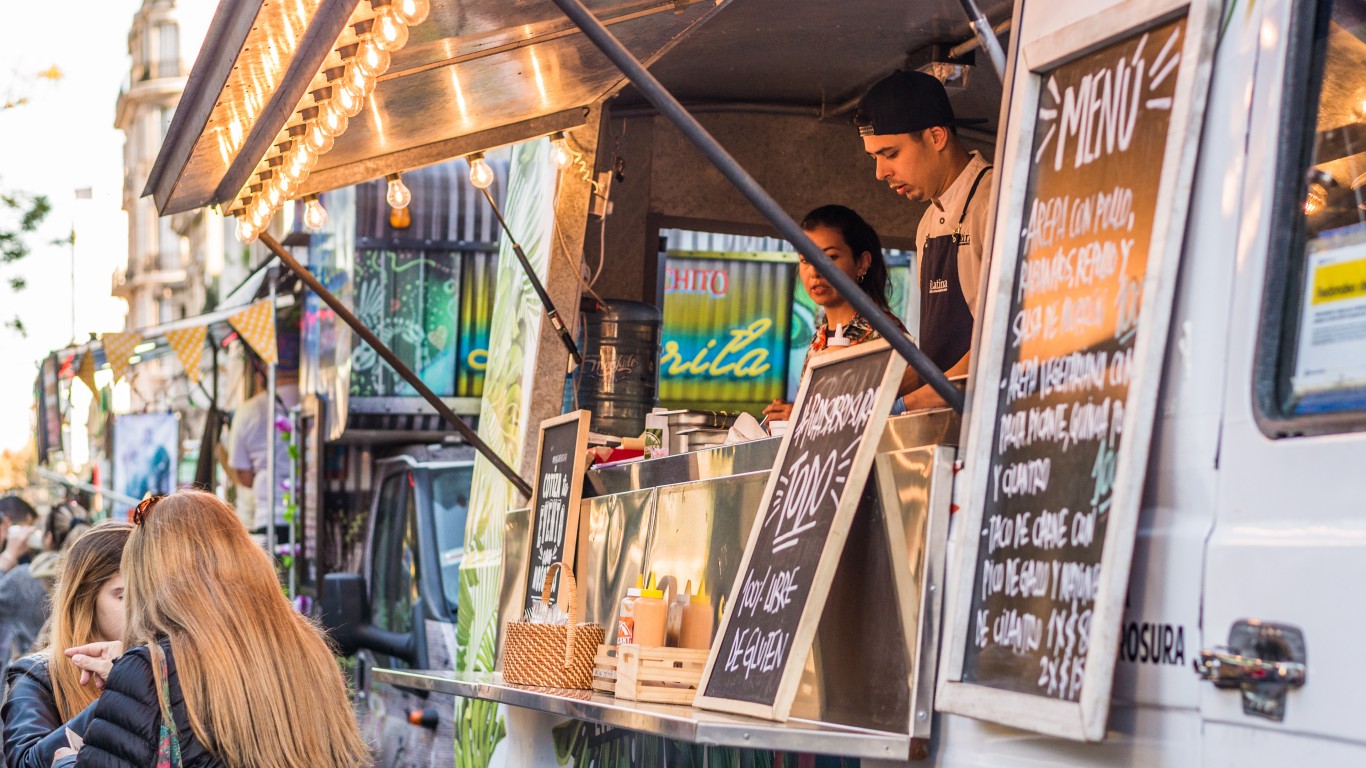
Food trucks
Like food delivery services, these are now a permanent part of the culinary landscape. L.A.-based Korean-American chef Roy Choi may have gotten the whole thing started with his first Kogi Truck in late 2008, becoming a food celebrity when both his operations and the trend in general took off. Since then, already established chefs like the Food Network’s late-’90s “Too Hot Tamales” (Mary Sue Miliken and Susan Feniger) and the ubiquitous José Andrés have gotten into the act. The food truck industry has grown an average of 7.9% per year since 2011, and reported $2.7 billion in revenue in 2017.
[in-text-ad-2]
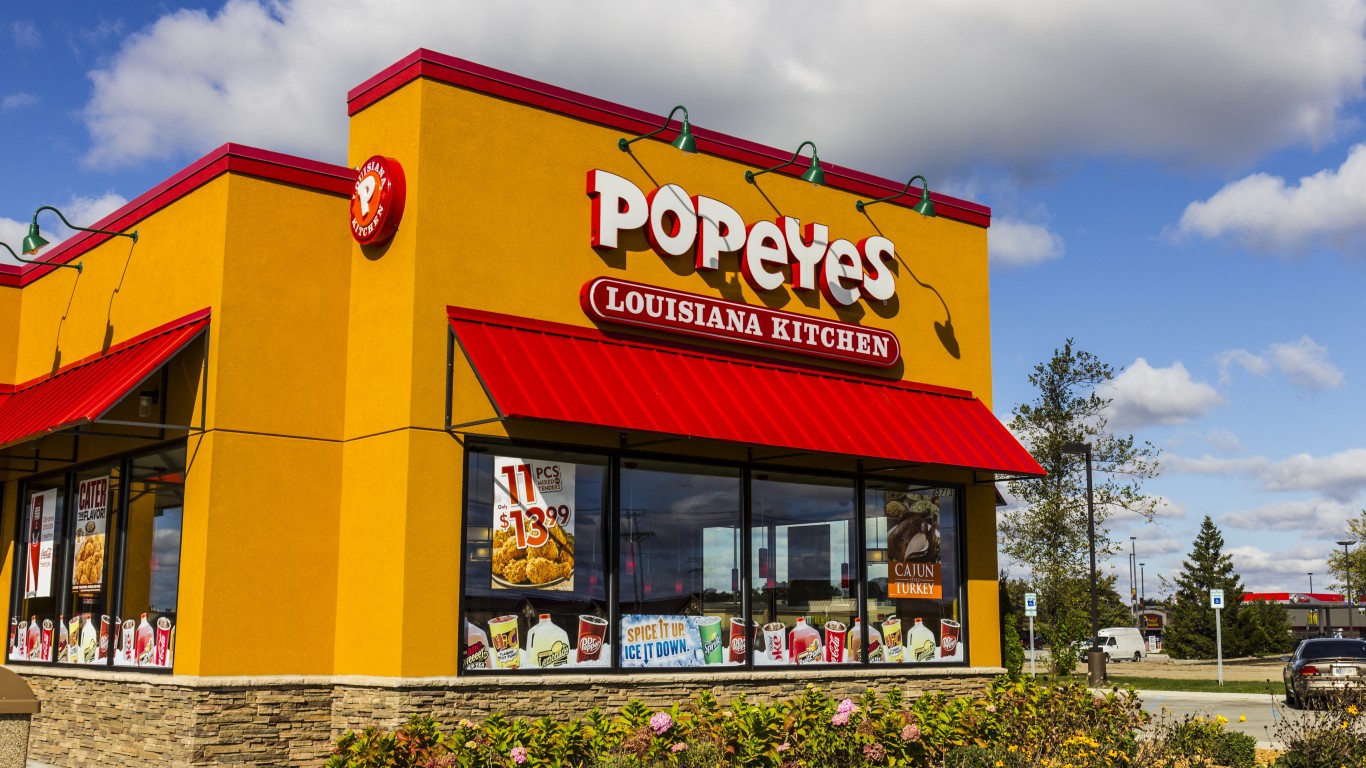
Chicken sandwiches
Boneless fried chicken sandwiches are everywhere these days. All the big chains have their versions, and two of them became protagonists in this summer’s “chicken wars,” as Chick-fil-A (which claims to have invented the sandwich) and Popeyes Louisiana Kitchen (which introduced theirs to great fanfare in August) trolled each other on social media. Popeyes’ version was so instantly popular that the chain ran out of chicken, and ended up taking the sandwich off the menu for a couple of months. Cardi B, Justin Bieber, and reality TV star Tamar Braxton were among the celebs who weighed in on the subject (Bieber that the Popeyes sandwich was good but “not worth hype.”)

Sugar-free diets
Gwyneth Paltrow went sugar-free in 2010, so you know it must be a thing to do (though she has been known to backslide). Other famous folk who have given the diet a try include Kourtney Kardashian, Adele, Kate Hudson, and Alec Baldwin. This doesn’t just mean passing on the ice cream and drinking your coffee black. Serious sugar-free dieters give up not just sugar but also honey, maple syrup, and even some kinds of fruit (like bananas). The rationale? Not just the calories all that sweetness provides but the fact that sugar is poison — at least according to Huffington Post contributor Dr. David Samadi and other doctors, nutritionists, and scientists.
[in-text-ad]
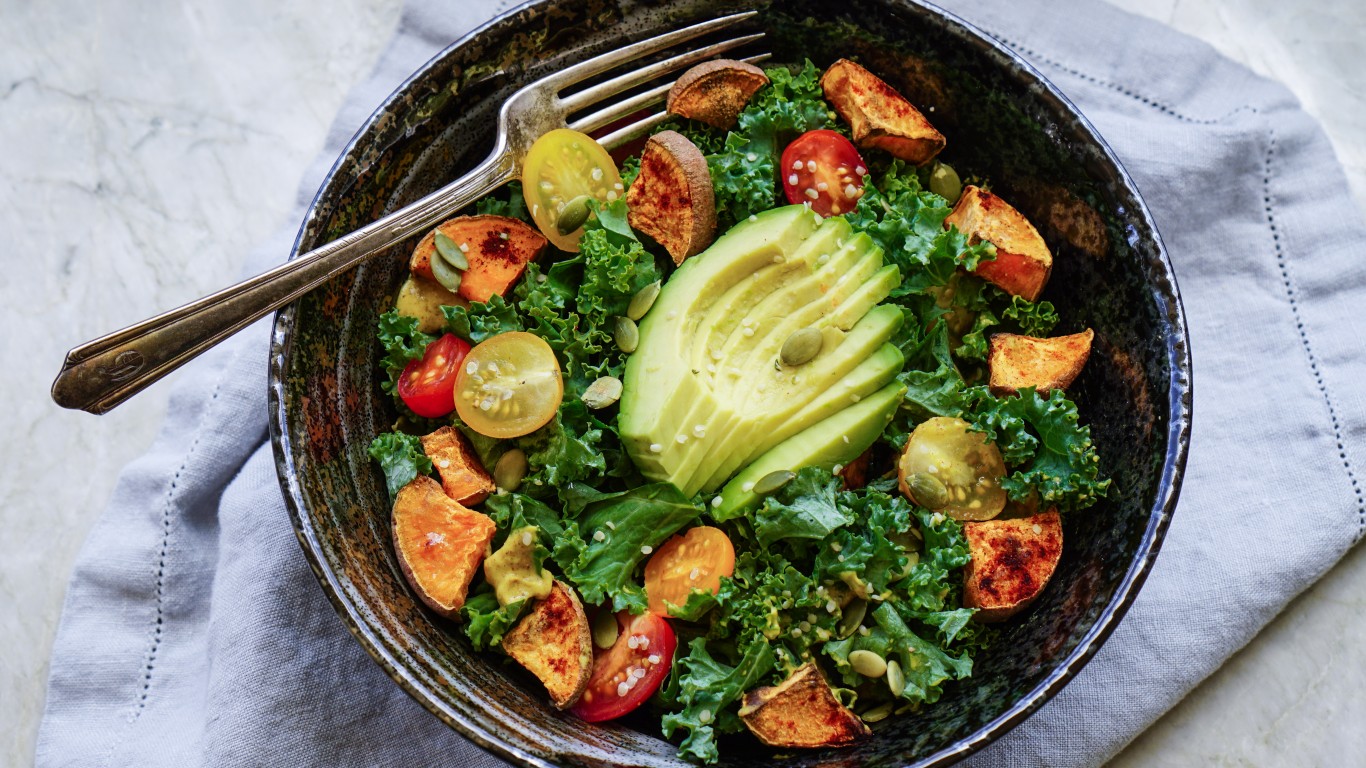
Paleo diet
The paleo (or caveman) diet was first outlined in 1975, given a boost by a book called “The Paleolithic Prescription” in 1988, and supported by numerous publications appearing in the 2000s. It became a hot trend only in this decade, though, after such celebrities as Jessica Biel, Kobe Bryant, and Miley Cyrus advocated for it. Paleo supposedly echoes the way people ate back when they were Neanderthals — meaning a diet of lean meats and fish, fruits and vegetables, and nuts and seeds but no dairy products, grains, or legumes.
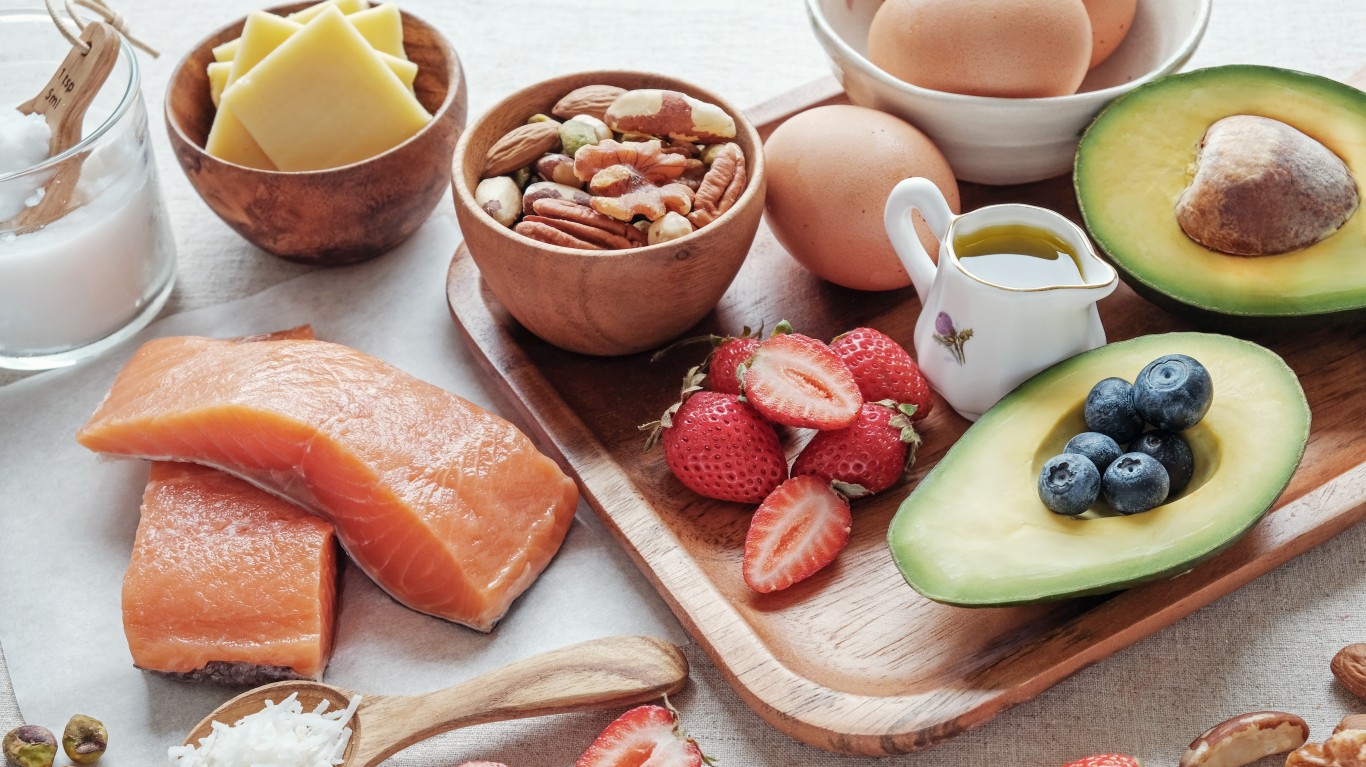
Keto eating
Dairy products are just fine on the keto regimen, hailed as “the most popular diet of 2018” (Google searches for the term far exceeded those for “paleo” or “intermittent fasting). Fruits and vegetables not so much. Originally developed as a treatment for epilepsy, this style of very-low-carb, very-high-fat eating takes its name from the fact that it produces ketones — acidic chemicals released by the liver when the body has insufficient insulin. This supposedly helps adherents lose weight and helps fight diabetes and other conditions — though some doctors warn it could induce low blood pressure, nutritional deficiencies, and an increased risk of heart disease. That apparently doesn’t bother such keto fans as Katie Couric, LeBron James, Tim Tebow, Vanessa Fox, Vanessa Hudgens, and (well, of course) Gwyneth Paltrow and the Kardashians.
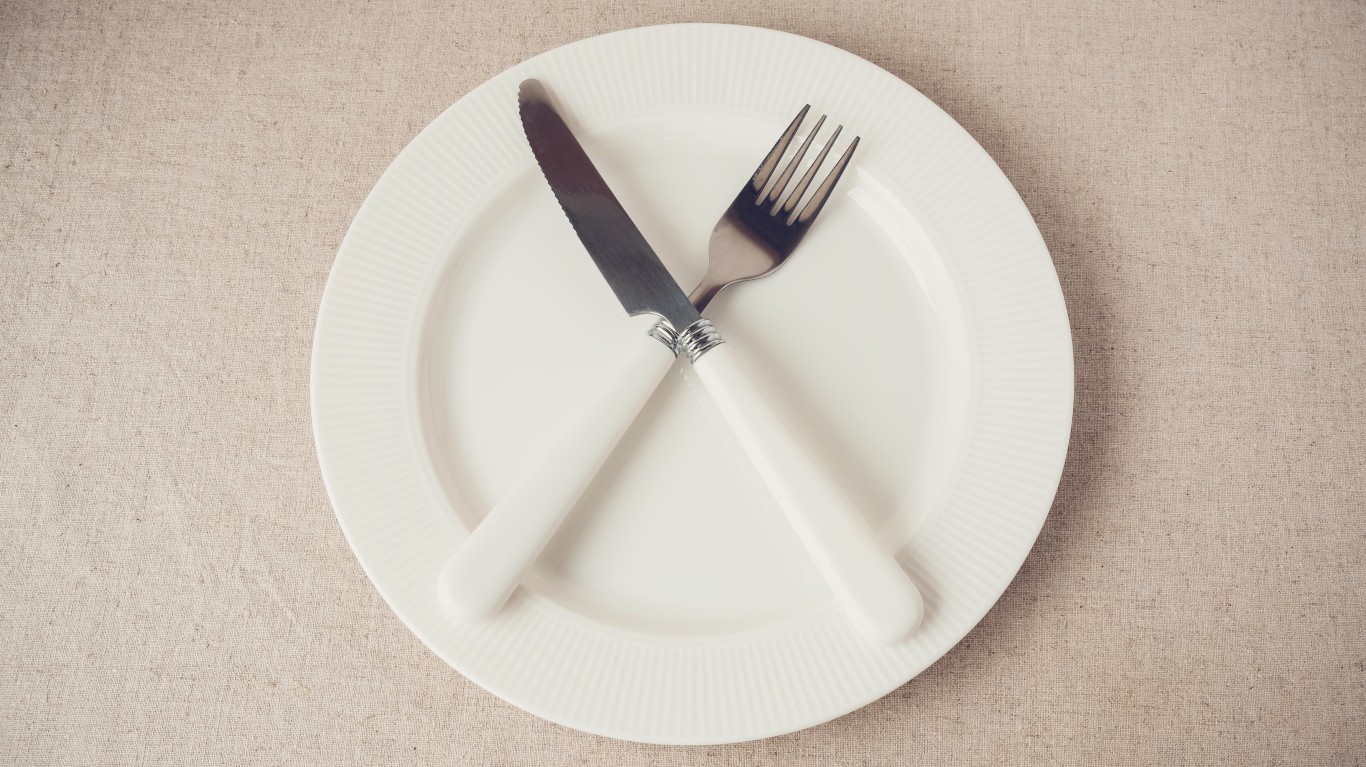
Intermittent fasting
Eating just one meal a day; restricting calorie intake (typically to 500 calories for women, 600 for men) for two or three days a week; or following eating patterns like 16:8 (eating only within one eight-hour period, with no other food allowed) — all are examples of intermittent fasting, believed to help practitioners lose weight, lower the risk of type 2 diabetes, and even help prevent cancer. Celebrities who have tried it, apparently successfully, include Chris Pratt, Jennifer Aniston, Moby, Halle Berry, Jimmy Kimmel, and Kourtney Kardashian.
[in-text-ad-2]
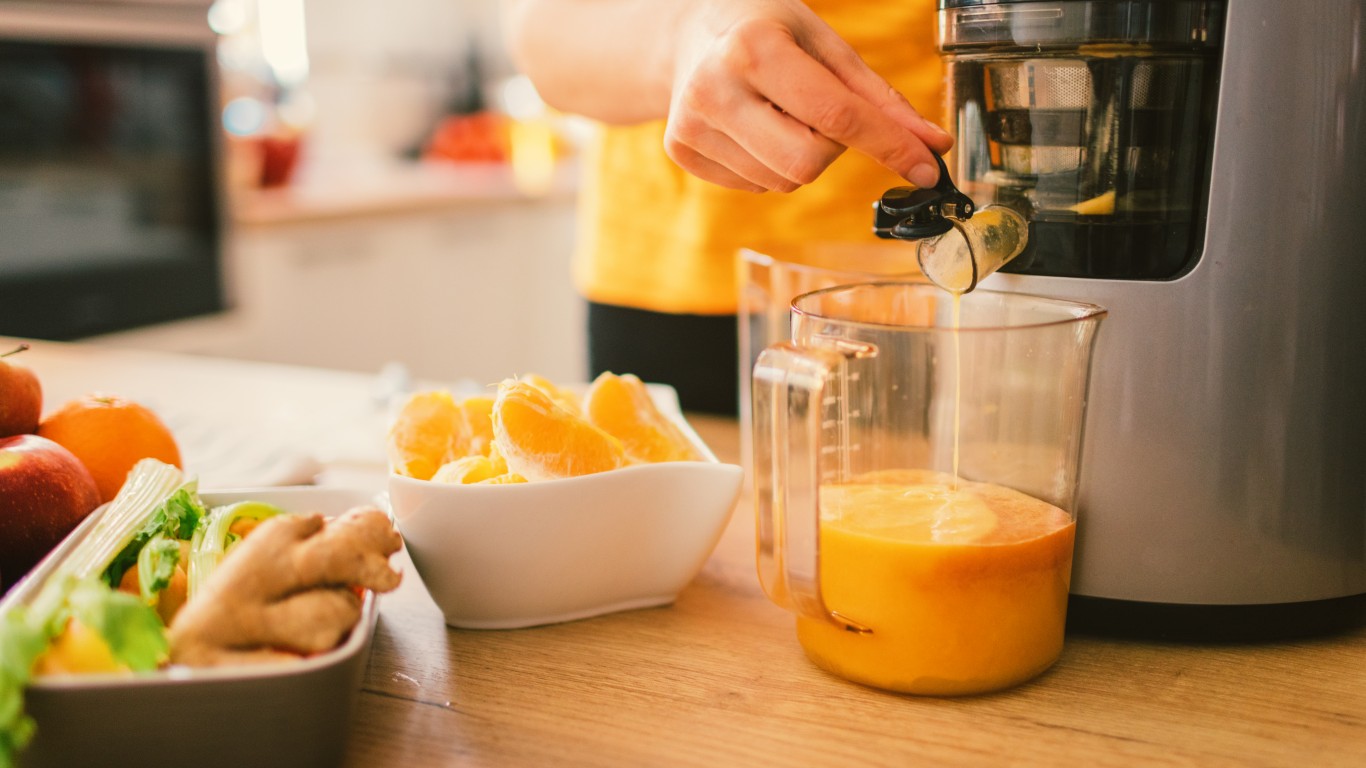
Juicing
Juicing — forgoing solid food and drinking only fruit and vegetable juices for days or even weeks at a time — is said to promote weight loss and “detox” the system (the regimen is sometimes called a “juice cleanse”). Many brands of detox-appropriate juice are sold commercially, but those who prefer to concoct their own can buy a pricey home juicer (they can cost as much as $400). Some studies question the supposed health benefits of juicing, but that hasn’t stopped such marquee names as Blake Lively, Colin Farrell, Salma Hayek, and the inevitable Gwyneth Paltrow from embracing the trend.
Take This Retirement Quiz To Get Matched With An Advisor Now (Sponsored)
Are you ready for retirement? Planning for retirement can be overwhelming, that’s why it could be a good idea to speak to a fiduciary financial advisor about your goals today.
Start by taking this retirement quiz right here from SmartAsset that will match you with up to 3 financial advisors that serve your area and beyond in 5 minutes. Smart Asset is now matching over 50,000 people a month.
Click here now to get started.
Thank you for reading! Have some feedback for us?
Contact the 24/7 Wall St. editorial team.
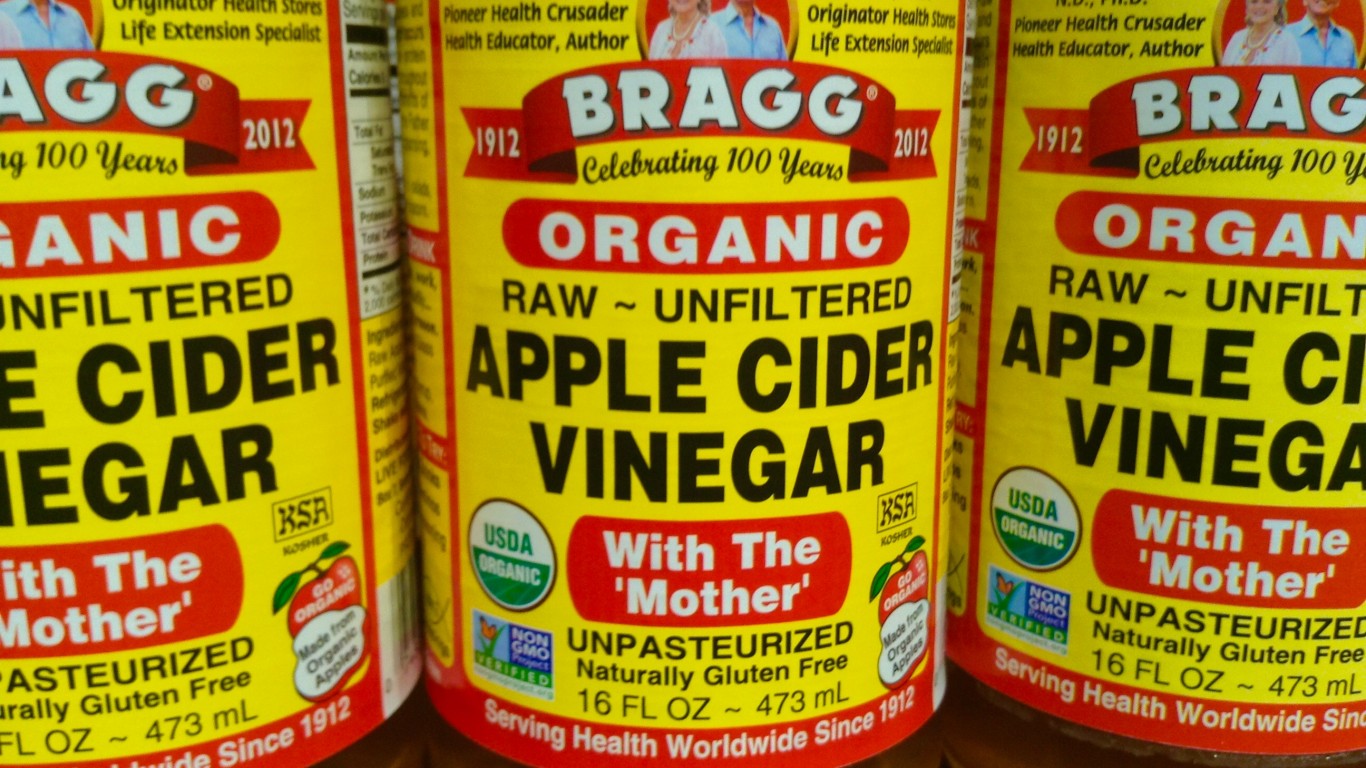
 24/7 Wall St.
24/7 Wall St.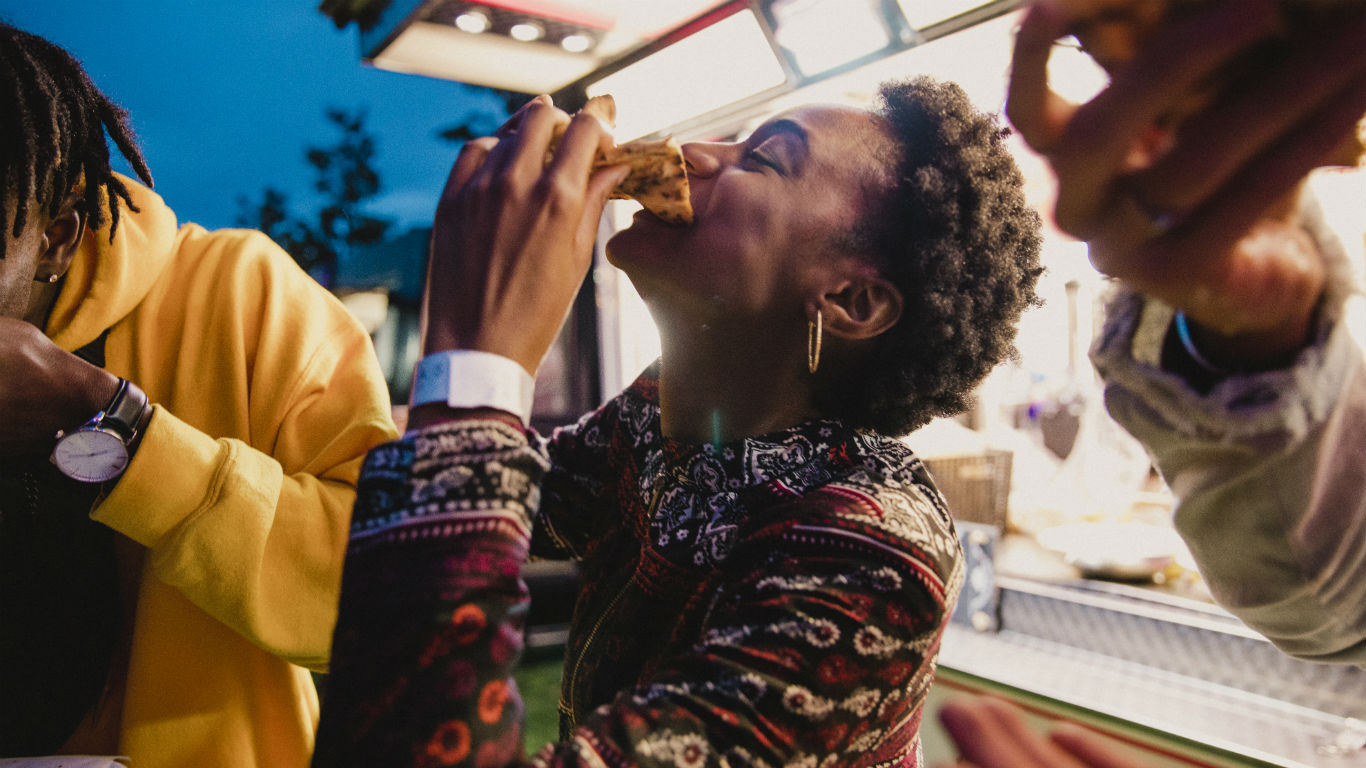 24/7 Wall St.
24/7 Wall St.